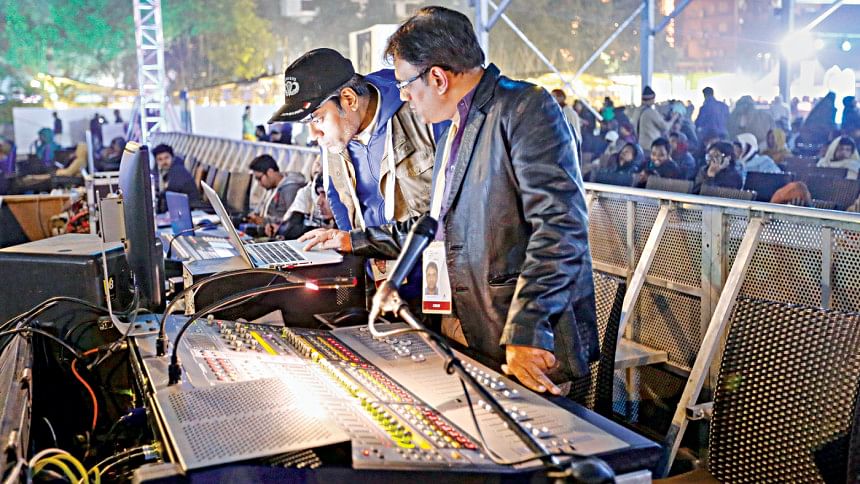The Sung and Unsung Heroes behind Music Production

Dances have the dancers, choreographers, sound and lighting technicians among others. Films have actors, scriptwriters, directors, and about a million other technicians involved.
Music is no exception to this, we have artists in the limelight and artists behind the curtains, neither group being less important than the other.
Composers
These people build a musical piece from scratch. They come up with main melodies, supporting tunes called harmonies, the foundation of the song and chord progressions.
Composers may or may not write music for specific instruments. Names we are all too familiar with include Beethoven, Mozart, and Bach, who were, first and foremost, composers.
In recent times though, musicians who receive recognition working purely as a composer are usually movie and video game score composers like Hans Zimmer, John Williams and Nobuo Uematsu.
Lyricists
The ones behind the stories told by the songs are the lyricists.
While bands across most genres tend to use lyrics written by their own members, some use lyricists outside their groups, like how Rumman Ahmed writes for Artcell.
Professional lyricists are prevalent in the Asian pop music scene, while the western pop industry sees songwriters ranging from Joni Mitchell to Taylor Swift, who, in addition to writing the lyrics, also compose the tunes for the songs.
Arrangers
If composition is the meat in the stew, arrangement is the spices.
Arrangers decide which instruments are suitable for which melodies and harmonies the composers have written. They also add or change elements to the composition so that the song flows well and delivers the intended effects to the listeners.
Orchestras and the pop music industry both rely heavily on professional arrangers.
Performers
Of course, writing isn't the end of it, the music needs to be performed to reach the audience.
Vocalists and instrumentalists are the faces of the music scene, artists that people are familiar with. Majority of the performers dabble in other creative roles, but many build themselves solely on performing.
Members of orchestras, session musicians in the recording industry, and most pop idols rely on their companies for the music to sing and dance to.
Sound Engineers
The common practice in modern producing music is to record each instrument's parts in a song separately in the studio and later mix them into one track.
Recording engineers, with their in-depth knowledge of acoustics, make sure the sounds are captured as best as possible with the available equipment. Mastering engineers ensure the finished track sounds good on all platforms the music may be distributed in including streaming sites, CDs, and vinyl.
Mixing engineers are indisputably the most important of the lot. They take the separately recorded tracks, process them digitally to sound the way the artist wishes, and produce complete songs. Mixing is a vast field owing to the sheer number of possible techniques to manipulate sounds, and no matter how good the composers and performers are, a song can't reach its full potential without a good mixing engineer.
Sabih Safwat spends most of his time with headphones on, wandering through familiar and unfamiliar soundscapes. Send songs to listen at [email protected]

 For all latest news, follow The Daily Star's Google News channel.
For all latest news, follow The Daily Star's Google News channel. 








Comments